CHLOM™ Blockchain
Share
AI-Powered Decentralized Licensing, Compliance, and Smart Governance
Version: 1.0 | Last Updated: February 2025
1. Introduction
The CHLOM™ Blockchain is an advanced decentralized framework integrating AI-driven compliance, decentralized governance, tokenized licensing, smart treasury management, and Zero-Knowledge Proof (ZKP) authentication. This blockchain-based infrastructure enables automated, trustless licensing and royalty distribution while ensuring security, efficiency, and interoperability across multiple industries.
By leveraging a hybrid Proof-of-Stake (PoS) and Proof-of-Authority (PoA) consensus mechanism, CHLOM™ ensures scalability and low-cost transactions, making it ideal for licensing, governance, and decentralized compliance automation.
2. Core Components of CHLOM™ Blockchain
- Hybrid PoS/PoA Consensus: Secure, scalable validation mechanism for decentralized compliance.
- CHLOM Token Standard: Dual-token system enabling on-chain licensing and utility functions.
- License Exchange (LEX): Decentralized licensing marketplace with royalty automation.
- Smart Treasury: Automated tax collection and royalty distribution.
- Decentralized Governance (DAO): AI-powered, community-driven policy enforcement.
- ZKP Authentication: Privacy-preserving identity verification for compliance.
- Cross-Chain Interoperability: Bridge for multi-chain licensing and smart contract interaction.
3. Blockchain Consensus & Network Layer
3.1 CHLOM Blockchain Node (Go)
The foundational node client, written in Go, maintains the blockchain state, executes consensus, and manages peer-to-peer transactions.
package main
import (
"fmt"
"net"
"encoding/json"
"time"
"sync"
)
type Block struct {
Index int
Timestamp string
PrevHash string
Hash string
Data string
Validator string
}
type Node struct {
Address string
Peers []string
Chain []Block
mux sync.Mutex
}
func NewBlock(prev Block, data string, validator string) Block {
return Block{
Index: prev.Index + 1,
Timestamp: time.Now().String(),
PrevHash: prev.Hash,
Hash: fmt.Sprintf("%x", time.Now().UnixNano()),
Data: data,
Validator: validator,
}
}
func (node *Node) AddBlock(data string, validator string) {
node.mux.Lock()
defer node.mux.Unlock()
newBlock := NewBlock(node.Chain[len(node.Chain)-1], data, validator)
node.Chain = append(node.Chain, newBlock)
fmt.Println("Block Added:", newBlock)
}
func main() {
genesisBlock := Block{Index: 0, Timestamp: time.Now().String(), PrevHash: "", Hash: "genesis", Data: "Genesis Block", Validator: "CHLOM DAO"}
node := Node{Address: "127.0.0.1:8080", Chain: []Block{genesisBlock}}
select {}
}
4. Smart Contracts & Licensing Infrastructure
4.1 CHLOM Token Standard (Solidity)
The CHLOM Token powers licensing transactions, TLaaS (Tokenized Licensing-as-a-Service), and decentralized finance within the ecosystem.
// SPDX-License-Identifier: MIT
pragma solidity ^0.8.0;
import "@openzeppelin/contracts/token/ERC20/ERC20.sol";
import "@openzeppelin/contracts/access/Ownable.sol";
contract CHLOMToken is ERC20, Ownable {
constructor() ERC20("CHLOM Coin", "CHLOM") {
_mint(msg.sender, 1000000000 * 10 ** decimals());
}
function mint(address to, uint256 amount) public onlyOwner {
_mint(to, amount);
}
function burn(uint256 amount) public {
_burn(msg.sender, amount);
}
}
4.2 Decentralized License Exchange (LEX)
LEX enables the minting, transfer, and sublicensing of digital and real-world licenses.
pragma solidity ^0.8.0;
contract LicenseExchange {
struct License {
uint256 id;
address owner;
uint256 price;
string metadata;
bool transferable;
}
mapping(uint256 => License) public licenses;
uint256 public nextLicenseId = 1;
function mintLicense(string memory metadata, uint256 price, bool transferable) public {
licenses[nextLicenseId] = License(nextLicenseId, msg.sender, price, metadata, transferable);
nextLicenseId++;
}
function transferLicense(uint256 id, address to) public {
require(licenses[id].transferable, "License is non-transferable");
require(licenses[id].owner == msg.sender, "Not owner");
licenses[id].owner = to;
}
}
5. AI-Driven Compliance & Fraud Detection
5.1 AI Model for Fraud Detection (Python)
import numpy as np
import joblib
from sklearn.ensemble import RandomForestClassifier
from sklearn.preprocessing import StandardScaler
class CHLOMFraudDetection:
def __init__(self):
self.model = RandomForestClassifier(n_estimators=100)
self.scaler = StandardScaler()
def train(self, X, y):
X_scaled = self.scaler.fit_transform(X)
self.model.fit(X_scaled, y)
joblib.dump(self.model, "fraud_model.pkl")
def predict(self, transaction_data):
X_scaled = self.scaler.transform([transaction_data])
return self.model.predict(X_scaled)
6. Zero-Knowledge Proof (ZKP) Authentication
6.1 Secure ZKP-Based Identity Verification
import py_ecc.bn128 as bn128
class CHLOMZKP:
def __init__(self, secret):
self.secret = secret
def generate_proof(self):
return bn128.multiply(bn128.G1, self.secret)
def verify_proof(self, proof):
return bn128.pairing(proof, bn128.G2)
7. CHLOM DAO: Governance & Treasury
7.1 CHLOM DAO Smart Contract
pragma solidity ^0.8.0;
contract CHLOMDAO {
struct Proposal {
uint256 id;
string description;
uint256 voteCount;
bool executed;
}
mapping(uint256 => Proposal) public proposals;
uint256 public nextProposalId = 1;
function createProposal(string memory description) public {
proposals[nextProposalId] = Proposal(nextProposalId, description, 0, false);
nextProposalId++;
}
function vote(uint256 proposalId) public {
proposals[proposalId].voteCount++;
}
function executeProposal(uint256 proposalId) public {
require(proposals[proposalId].voteCount > 100, "Not enough votes");
proposals[proposalId].executed = true;
}
}
8. Conclusion
The CHLOM™ Blockchain establishes a decentralized ecosystem where licensing, compliance, governance, and smart treasury management are executed in a trustless, AI-powered framework. By integrating TLaaS, ZKP authentication, and AI-driven risk assessment, CHLOM™ enables seamless automation of licensing and governance across industries.
As builders integrate components, XENthrive will transition governance and assets to the CHLOM DAO, ensuring sustainability, decentralization, and self-regulation.




